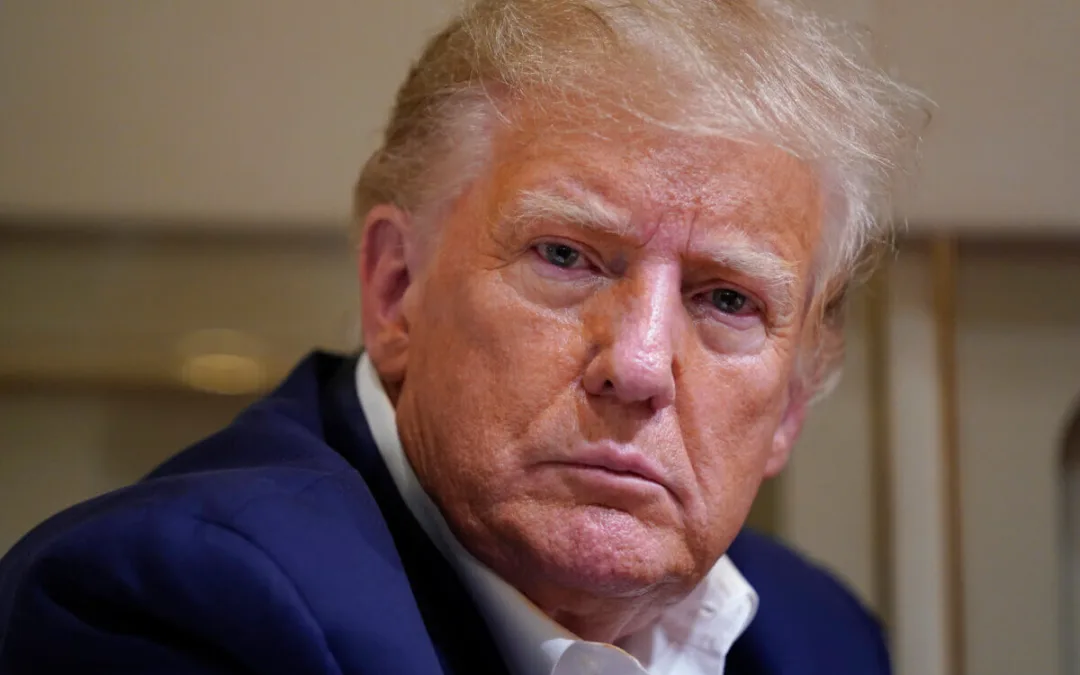
Image via AP Photo/Ragan Clark
After two weeks of national protests over the killing of George Floyd, some potential progress on police reform is on the horizon.
On Monday, House Democrats released a proposal that includes strategic ways to combat police brutality.
Led by the Congressional Black Caucus and the House Judiciary Committee, and New Jersey Sen. Cory Booker and California Sen. Kamala Harris, the Justice in Policing Act of 2020, calls for a ban on chokeholds and the establishment of a national database to track police misconduct, among other measures.
“We can’t settle for anything other than transformative structural change,” House Speaker Nancy Pelosi said today. “True justice can only be achieved with full, comprehensive action, that is what we are doing today. This is a first step. There is more to come.”
The package confronts several aspects of law enforcement accountability and practices that have come under criticism, especially as more and more police violence is captured on cellphone video and shared widely across the nation, and the world.
The proposed legislation would revise the federal criminal police misconduct statute to make it easier to prosecute officers who are involved in misconduct “knowingly or with reckless disregard.” It would also change “qualified immunity” protections for police “to enable individuals to recover damages when law enforcement officers violate their constitutional rights.”
Lawmakers also want to provide greater oversight and transparency of police behavior in several ways. For one, the legislation would grant subpoena power to the Justice Department to conduct “pattern and practice” investigations of potential misconduct and help states conduct independent investigations. It also would ban racial profiling and boost requirements for police body cameras.
And it would create a “National Police Misconduct Registry,” a database to try to prevent officers from transferring from one department to another with past misconduct undetected, the draft said.
While Democrats are expected to swiftly approve the legislation this month, it does not go as far as demonstrators nationwide have demanded: to “defund the police.” The outlook for passing the package in the Republican-held Senate is slim.
Where Biden Stands
Meanwhile, former Vice President and Democrat presidential candidate Joe Biden recruited Julián Castro last week to help his campaign take on police reform. On June 2, Biden tweeted, “Julián — I made a promise to George’s family that he wouldn’t just become another hashtag. We’re going to tackle this head-on — and we’re going to need your help to do it. Grateful for your support.”
Biden has yet to release an outline of his police reform agenda; however, according to the Washington Post, it won’t include defunding the police. With Castro on board, Biden may adopt some of his police reformative initiatives, which include establishing national standards and guidelines for police conduct, increasing transparency and accountability for police departments and officers, “demilitarize” police by ending the transfer of federal military weaponry to local departments and ending racial profiling.
As more local city officials figure out a way to reform their police departments and address police brutality and racism — several mayors have signed on to implement changes thanks to former President Barack Obama.
RELATED: Black Female Mayors Meet the Moment With Leadership Amid Pandemic and Protests
On June 3, Obama addressed the deaths of Floyd, Breonna Taylor, and Ahmaud Arbery, and police reform via a virtual town hall. In the Zoom meeting, Obama directed mayors and other city council officials to implement changes within their police departments.
Some of these changes — part of “My Brother’s Keeper Alliance” pledge — calls for local officials to enforce a five-step effort, which includes reviewing police use of force policies, engaging with the community by listening to their input, reporting the findings from the community and seek feedback, and reforming the community’s police use of force policies.
In the same vein, Democrat Massachusetts Rep. Ayanna Pressley released a resolution that “condemns all acts of brutality, racial profiling, and the use of excessive force by law enforcement officers and calls for the end of militarized policing practices.” The resolution also calls on the Department of Justice to “reinstitute its role in investigating individual instances of police brutality, violence, and racial profiling, and police departments that violate civil rights.”
“Today we are going to be precise and prescriptive because the hurt and harm and the injustices that have been put on us were very precise, were very prescriptive, were very targeted,” Pressley said last week, according to CBS Boston.
Dozens of House Democrats are backing the resolution, including the Black Caucus, the Hispanic Caucus, the Congressional Asian Pacific American Caucus, and Native American Caucus.
RELATED: Last Week’s Protests Are About More Than George Floyd’s Death. The Data Shows It.
“As second vice-chair of the Congressional Hispanic Caucus, I am proud that the Caucus is supporting the resolution introduced by Representative Ayanna Pressley, along with Representatives Ilhan Omar, Karen Bass, and Barbara Lee,” California Congresswoman Nanette Diaz Barragán said in a statement.
Mayors’ Support
Atlanta Mayor Keisha Lance Bottoms, San Francisco Mayor London Breed, D.C. Mayor Muriel Bowser, Dallas Mayor Eric Johnson, San Jose Mayor Sam Liccardo, and Long Beach Mayor Robert Garcia, and others, have already promised to use these guidelines in their cities.
Los Angeles Mayor Eric Garcetti has already agreed to make a substantial financial change to his police department. Last week, he issued a statement saying he would not dismantle his police department but agreed to cut $150 million from the LAPD budget. According to Newsweek, Garcetti will redirect the funds “to help improve education, healthcare, and job opportunities for the city’s black communities.”
Minneapolis Mayor Jacob Frey isn’t having much success with his community after he was booed out of a protest on Saturday after he refused to dismantle the police department. The following day, however, nine members of the Minneapolis City Council said they would vote to defund the police department.
RELATED: 6 Years After Eric Garner, Black Citizens Still Can’t Breathe in America
The House Judiciary Committee is planning to hold a hearing — on June 10th — on police brutality and racial profiling. The discussion will be live-streamed and can be viewed here. And on June 16, South Carolina Republican Sen. Lindsey Graham will conduct a hearing on police conduct to “shine a bright light on the problems associated with Mr. Floyd’s death, with the goal of finding a better way forward for our nation.”
Editor’s note: We’ve updated this article to clarify that activists nationwide were demanding the defunding of police departments and to remove a misleading section about a police reforms campaign that has garnered skepticism over its effectiveness and which was not given clear context in this story.
Additional reporting by the Associated Press.
Politics

Teamsters and UPS Reach Tentative Deal to Avoid Strike, 340,000 Workers to Get Raises
The tentative deal represents a huge win for full- and part-time UPS Teamster workers, who would get significant pay raises and better working...



One Republican Senator Is Blocking 265 Military Promotions, Leaving the Marines Without a Confirmed Leader
Sen. Tommy Tuberville's decision means these military officers are not getting the pay raises they’re owed, cannot move their families to wherever...
Local News



Teamsters and UPS Reach Tentative Deal to Avoid Strike, 340,000 Workers to Get Raises
The tentative deal represents a huge win for full- and part-time UPS Teamster workers, who would get significant pay raises and better working...



One Republican Senator Is Blocking 265 Military Promotions, Leaving the Marines Without a Confirmed Leader
Sen. Tommy Tuberville's decision means these military officers are not getting the pay raises they’re owed, cannot move their families to wherever...




